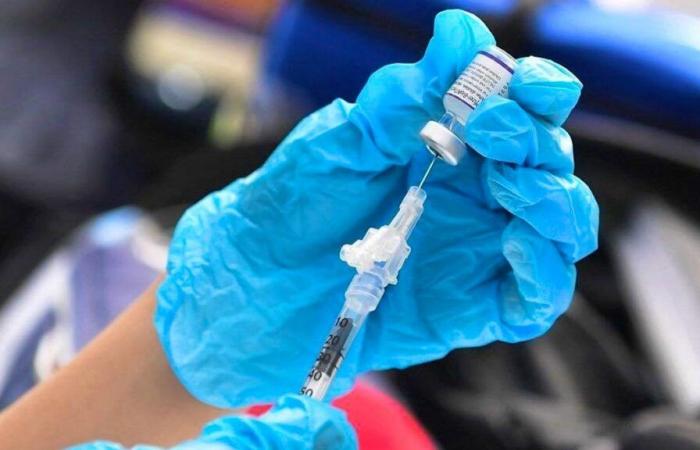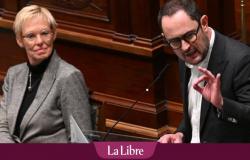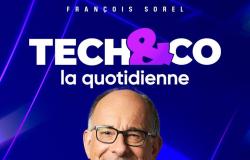The European Commission reaffirmed, Friday, that it does not have the SMS exchanged during the Covid crisis between Ursula von der Leyen and the boss of Pfizer Albert Bourla, and assured that these written exchanges did not fall within the framework of a negotiation of purchase of vaccines. The European executive was ordered to explain itself before the court of the European Union, in Luxembourg, after a complaint from New York Times demanding to have access to the SMS exchanged. The content of the text messages has always remained secret.
The Commission, whose lack of transparency has already been highlighted in this matter, affirmed in 2022 that they had not been kept. “The president (of the Commission, Ursula von der Leyen) did not negotiate the conditions of the contract by SMS” with Mr. Bourla, affirmed the lawyer Paolo Stancanelli, responsible for defending the European executive. “There were exchanges by SMS to organize oral exchanges. We do not negotiate verbatim by SMS,” he added. The lawyer cited an example of an exchange: “this is what Albert Bourla may have said: “we need to talk. Okay. At 6:00 a.m. CET+”. He also explained that the Commission services requested to find these exchanges in 2022 had contacted Ms von der Leyen’s office. Without winning the case.
“The firm responded that they were unable to locate these documents.” “The European Commission has never denied that there were interactions between Ursula von der Leyen and Albert Bourla. The link between these texts and the discussion on the agreements relating to vaccines is missing,” insisted Paolo Stancanelli. The hearing gave rise to lively exchanges, with the lawyer for the American daily accusing the Commission of having “violated the principles of good administration and communication” by neglecting the importance of these SMS messages.
“This case raises a very important question: can those responsible escape public transparency by exchanging by SMS?” asked this lawyer, Bondine Kloostra. The revelation in 2021 by the New York Times of the existence of text messages exchanged between Albert Bourla and the President of the European Commission had sparked a lively controversy. The American pharmaceutical laboratory Pfizer was then the largest supplier of anti-Covid vaccines ordered by the European Union.
The New York Times requested access to the text messages exchanged under freedom of information. The daily newspaper is based on a 2001 European regulation relating to public access to documents from the three major EU institutions (Commission, Council and Parliament). The EU court’s decision will not be issued for several weeks, if not months.
Are you already following us on WhatsApp?
Subscribe to our channel, activate the little ???? and you will receive a news recap every day in early evening.






